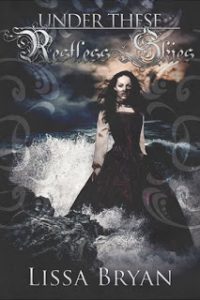 As more historical research is done, historical characters are being rehabilitated and long-believed myths are being challenged and even banished, which is a wonderful thing. However, sometimes, the rehabilitation of one person can lead to another suffering, as has been the case with Anne Boleyn and Jane Boleyn. But things are changing. We had the publication of Julia Foxe’s biography of Jane Boleyn, the George Boleyn biography Clare Cherry and I published and more recently we’ve had the wonderful novel The Raven’s Widow by Adrienne Dillard, all sympathetic to Jane – hurrah!
As more historical research is done, historical characters are being rehabilitated and long-believed myths are being challenged and even banished, which is a wonderful thing. However, sometimes, the rehabilitation of one person can lead to another suffering, as has been the case with Anne Boleyn and Jane Boleyn. But things are changing. We had the publication of Julia Foxe’s biography of Jane Boleyn, the George Boleyn biography Clare Cherry and I published and more recently we’ve had the wonderful novel The Raven’s Widow by Adrienne Dillard, all sympathetic to Jane – hurrah!
A few weeks ago, I noticed on social media that Lissa Bryan was withdrawing her Anne Boleyn novel Under These Restless Skies from the market and when I read why I not only wanted to applaud her, I wanted her to share her story with others. So, Lissa has written this article for us. Over to Lissa…
It was a tough decision, but one my conscience wouldn’t let me avoid. I’d wronged someone. It didn’t matter that she’d been dead for five hundred years. Nor did it matter that I was one of a long line of writers to vilify her.
I had to rectify this. I had to make it right.
Back in 2013, I published Under These Restless Skies, a novel about the reign of Anne Boleyn and her downfall. I wanted to sweep away the cobwebs of myth that had obscured Anne’s story; instead I ended up adding to them. I was so concerned with getting Anne’s story right – portraying her fairly and accurately according to the extant records – that I ended up treating another historical person with the same cruel slanders Anne’s memory had endured.
I spent over a year working on the novel, mostly because I’m the pedantic sort. If I was writing a dinner scene, I wanted to make sure every food on the table was something commonly served. Originally, it had sixty pages of notes at the end, mentioning every place I’d made slight deviations from the historical record. My publisher asked my editor to approach me for a gentle chat, and I reluctantly pared it down to a few pages of what I thought were the most important notes.
In one of those notes, I mentioned that the way I’d portrayed Jane Parker, Lady Rochford, as the scheming, vindictive person who’d caused Anne’s downfall had started to fall out of favour. But that was putting it mildly.
Over the last few years, I’ve learned more about Jane, and I saw that I had maligned an innocent woman, attributing a malice to her that the historical record doesn’t show. I’d made her the architect of Anne’s demise and that’s just not true.
The more I learned, the more what I’d done weighed on me. I was able to update my Tudor history blog with more accurate information as it came my way, but not the book. I stopped promoting it. I didn’t want to do interviews about it any longer.
I made a promise to myself that I’d someday make this right. I didn’t know how I’d possibly do this, because my publisher held the rights for it for many years to come, but I promised I’d fix it.
To my shock, my publisher announced it was closing. The rights to my books reverted to me in October. I could now make good on my vow.
It wasn’t an easy decision to make. The simplest choice would simply be not to republish it at all, but let it drop into quiet obscurity. But I knew I had to do it. Re-writing the book would be a challenge, but hey, we writers thrive on those sorts of challenges. I offered to replace any paperbacks people wanted to mail to me; that’s going to be expensive, but I think it’s the right thing to do.
I don’t know how long it will take, because I’ve never done anything like this, but the book will be back and it will portray Jane Parker as she was according to the historical record.
Thank you, Lissa, I think it’s a wonderful thing you’re doing. Do please keep us updated!